
We’ve vilified carbohydrates for decades. When we want to lose weight, breads and similar foods are often the first things we target. But researchers warn that we’re misunderstanding the link between carbs and weight management.
In the early 2000s, low-carb diets—the Atkins diet, the paleolithic diet, etc.—began to skyrocket in popularity. These diets argued that there was a link between carbs and weight gain, and each promised quick and easy weight loss if you simply stopped eating too many carbohydrates.
Many of these diets’ underlying theories have stuck around in our collective consciousness. In fact, approximately 30 percent of us still try to avoid carbohydrates. The approach has even been embraced by more modern takes on the low-carb lifestyle such as the keto diet.
Yet national weight loss studies and new nutrition research paint a muddier picture of the low-carb approach. If your goal is not only losing weight, but also keeping the extra pounds off, take a moment to detangle carb facts from fiction.

01
What are carbs?
When you eat, your body breaks your food down into three macronutrients that it needs for daily functioning:
- Carbohydrates
- Proteins
- Fats
The fibres, sugars, and starches in your food fall into the category of carbohydrates.
Carbs are primarily found in plant-based foods (e.g., vegetables, grains, nuts and seeds, and fruits) and dairy products, although you’ll find trace amounts in meat and seafood.
02
Carbohydrates play key functions in your body
 Your body has evolved to rely on carbs for:
Your body has evolved to rely on carbs for:
- Energy, especially during exercise and strenuous physical movement.
- Preserving and protecting your muscle mass and muscle strength.
- Maintaining healthy digestion, especially in terms of starches to feed your beneficial gut bacteria, and fibre to keep your digestion moving smoothly.
Your body can adapt. Significantly restricting or eliminating carbs forces your body to produce ketones (a type of fuel) from your stored body fat.
Some low-carb diets claim that using ketones for fuel accelerates fat loss. However, your body’s first natural inclination is to turn to carbohydrates as fuel.
03
You need more carbohydrates than any other macronutrient
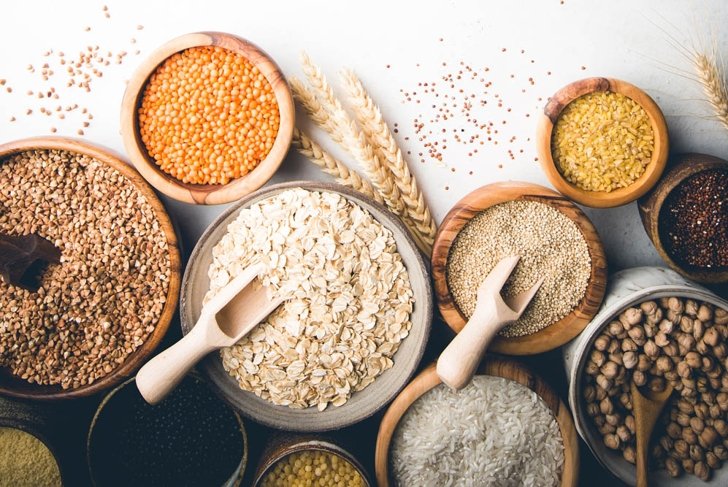 Everybody, and every body, is different. The amount of carbohydrates you need varies according to your physical activity and your weight loss goals.
Everybody, and every body, is different. The amount of carbohydrates you need varies according to your physical activity and your weight loss goals.
In general, dietitians recommend splitting your daily calories into the following ratios:
- Carbohydrates: 45% to 60%
- Protein: 20% to 30%
- Fat: 20% to 25%
Typically, the higher your physical activity levels, the more carbs your body needs.
04
Carbs aren’t inherently “bad” or “good”
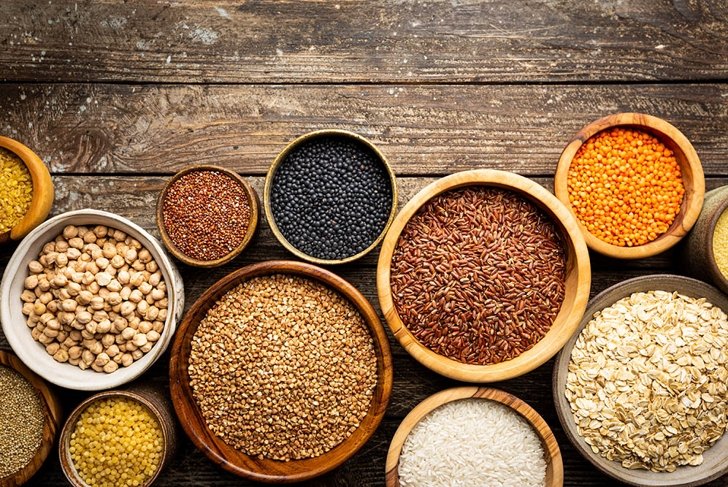 The psychology of eating and how you think about your food play a critical role in weight loss and weight management success.
The psychology of eating and how you think about your food play a critical role in weight loss and weight management success.
We’ve long attached moral labels, such as “good,” “bad,” or “clean,” to our food choices. Much of that comes from savvy marketers and food brands who want to influence our decisions.
Psychologists warn that moral labelling distorts our views of foods and may lead to unhealthy eating patterns.
Instead of writing off all carbohydrates as unhealthy, or thinking in terms of “good” versus “bad” carbs, reframe your perspective and focus on quality carbs.
05
Quality carbs matter
 Quality, not quantity, is most important for faster weight loss, healthier weight management, and optimal wellness.
Quality, not quantity, is most important for faster weight loss, healthier weight management, and optimal wellness.
High-quality, healthy carbohydrates include:
- Unprocessed or minimally processed whole grains
- Beans and legumes
- Nuts and seeds
- Vegetables
- Fruits
Significant sources of unhealthier carbs that may contribute more to weight gain include:
- Foods with added sugars (e.g., sweetened drinks, desserts, etc.)
- Foods made with refined grains (e.g., white rice, white bread, etc.)
- Highly processed foods
06
Low-carb diets do not outperform other weight loss diets
 Some small, short-term studies have suggested that low-carb dieting may lead to improved weight loss.
Some small, short-term studies have suggested that low-carb dieting may lead to improved weight loss.
But researchers warn that it’s tricky to reach a true consensus because there’s no consistent, standardized definition of what “low-carb” actually means.
The best insights come from controlled feeding studies. Researchers track exactly what people eat—often using meals prepared by a research kitchen—versus most other studies where people self-report their diet habits.
In a meta-analysis of 32 different controlled feeding studies, low-carb diets were not any more effective for weight loss and weight management than other forms of dieting.
In some cases, a low-carb diet was actually less effective.
07
People struggle to stick with a low-carb approach
 Consistency matters far more than carbs.
Consistency matters far more than carbs.
Adherence—your ability to stick with your meal plan—is the most crucial factor for long-term weight loss and weight management.
Researchers have found that the low-carb diet is one of the hardest for people to stick with past the one-year mark. The same report also found that many who followed a low-carb approach saw their weight bounce back as soon as they deviated from the diet.
The more options and choices we have in our diet, the more likely we’ll enjoy our diet and stick with it. Eliminating entire food groups, like what’s done when cutting carbs, may be why so many people struggle with low-carb adherence.
08
Cutting carbs cuts out healthy foods
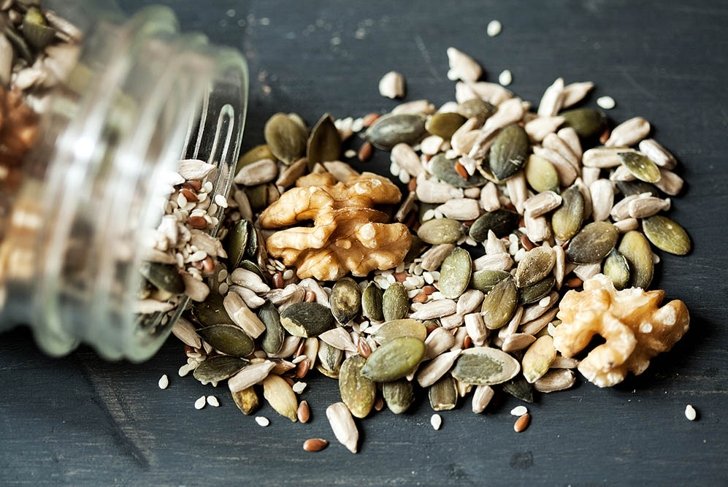 Plant foods are some of the primary sources of antioxidants, essential vitamins and minerals, fibre, and other compounds that support optimal health.
Plant foods are some of the primary sources of antioxidants, essential vitamins and minerals, fibre, and other compounds that support optimal health.
Because carbohydrates come primarily from plant-based foods, most low-carb diets severely restrict or completely cut out your best options for getting these antioxidants and similar nutrients.
And that concerns researchers, who say this aspect of the diet hasn’t gotten enough attention. Researchers are especially worried about how restricting fruit, whole grains and fibre affects your micronutrient levels, bone mineral density, and cancer risks.
09
Low-carb diets are linked to several health concerns
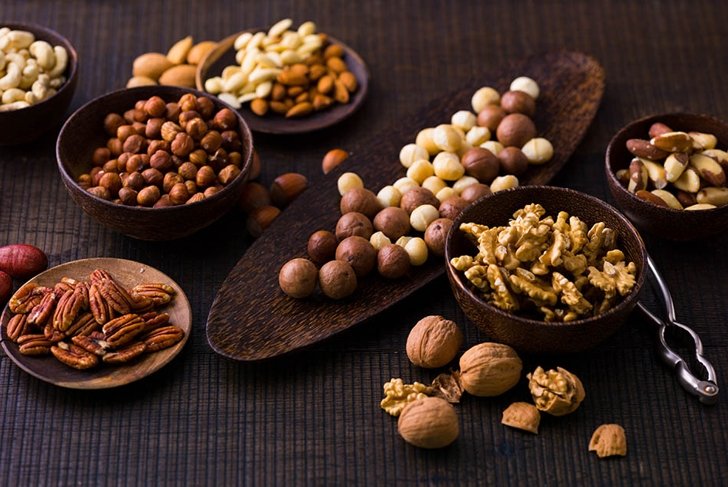 Some low-carb diets heavily emphasize animal-based fats and proteins. A study of nearly 16,000 dieters found that this approach was associated with a higher rate of mortality.
Some low-carb diets heavily emphasize animal-based fats and proteins. A study of nearly 16,000 dieters found that this approach was associated with a higher rate of mortality.
Other potential concerns include:
- Higher levels of LDL (the so-called “unhealthy” type cholesterol)
- Reduced exercise endurance and increased fatigue, which may sabotage your exercise goals (and exercise is crucial for healthy weight maintenance)
- Slower metabolism, which may further compromise your weight loss and weight gain worries.
10
Break the link between carbs and weight management
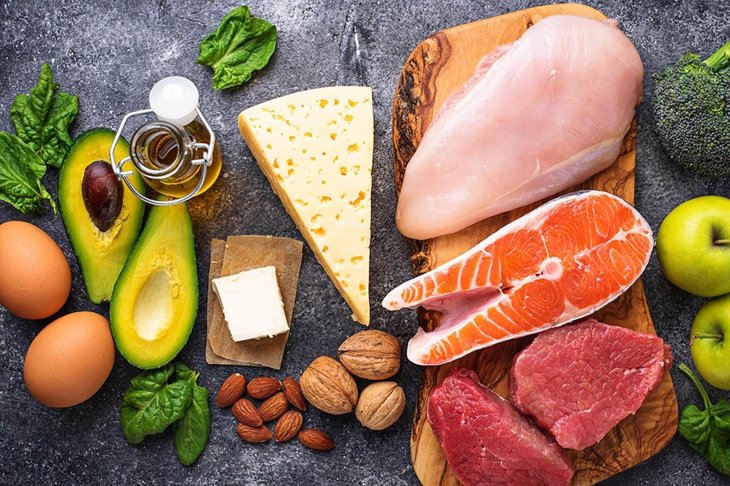 The link between carbs and weight management is murky at best. And most people pursue a low-carb weight loss diet without a complete understanding of the complex nutritional science behind carbohydrate intake.
The link between carbs and weight management is murky at best. And most people pursue a low-carb weight loss diet without a complete understanding of the complex nutritional science behind carbohydrate intake.
If you want to maintain a healthy weight, the research is clear.
The best weight loss diet (and the best diet for your overall health) is one that offers a variety of choices, incorporates plant-based whole foods, and—most importantly— is a plan that you enjoy and will stick with for a long time.






























